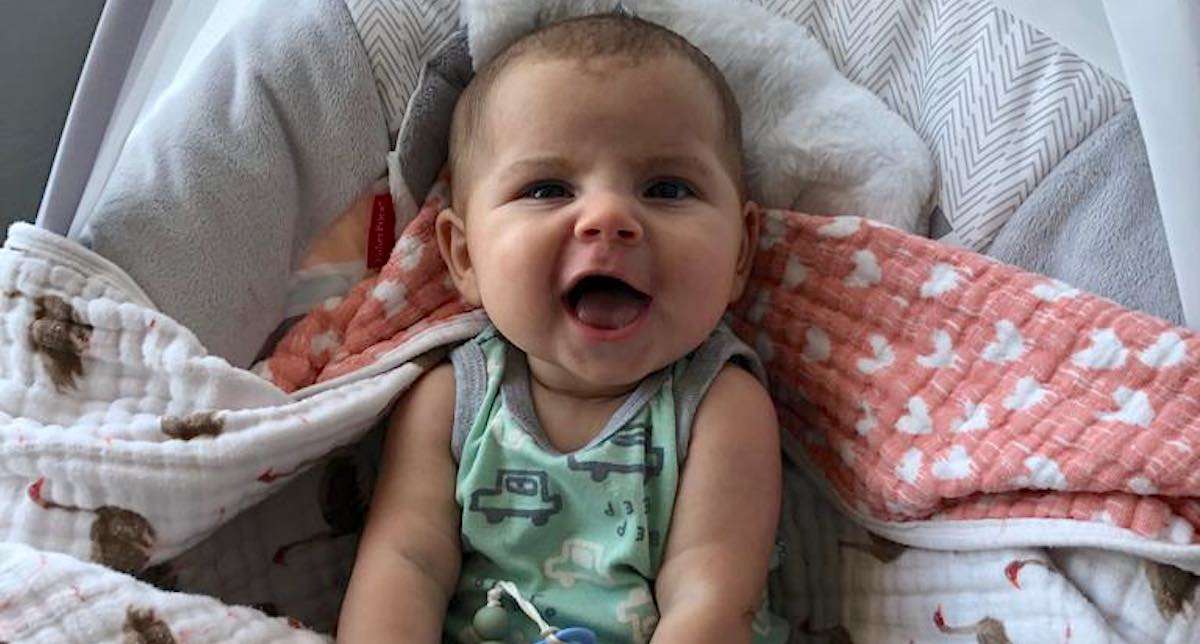Electrical Brain Stimulation Improves Mental Processes in Alzheimer's Patients
The innovative technology, known as transcranial direct current stimulation (tDCS), could also be used as a treatment to improve cognition.

Vitamin B2, or riboflavin, is a key compound in energy metabolism, cellular respiration, and antibody production, and in the case of a 1-year-old baby from California, perhaps the reason he was able to recover from Mitchell Syndrome.
If that disease sounds unfamiliar to you, that's because it's one of the rarest diseases known to medicine. There have been just 20 recorded cases of this genetic disease, and it was only named back in 2019.
Augustine was born a perfectly healthy boy on May 27th, 2022, but at three months he had to be hospitalized with hypoglycemia, and his health afterwards began to deteriorate.
He began to lose his hearing and he also had difficulty moving. At six months, the tot stopped eating altogether. At first doctors said it was just down to teethin, but an MRI scan showed deterioration of the protective covering of nerve fibers in his brain known as demyelination.
Augustine's mother Kristen and his father Moses, "begged" for further genetic testing, which revealed a genetic mutation of a gene called ACOX1, leading to the diagnosis of Mitchell syndrome aged seven months.
The newly diagnosed neurological illness is caused by a rare genetic mutation which attacks the nerves that control hearing, movement, and vision.
"At the time, the hospital were only aware of three patients with the disorder, who had all passed away, that was incredibly hard to hear," said Kristen. "It wasn't until weeks later that I started asking more questions."
In the course of that asking she found the Mitchell and Friends Foundation, set up after the death of Mitchell Herndon, the first recorded death by this disease in 2019.
The foundation had detailed records of all 20 known patients, some of whom were still alive, and they shared with Kristen that vitamin B2 seemed to have some positive effect for ameliorating the worst of the disease.
"He can sit up, eat and crawl which doctors never expected him to do," said Kristen. "But there's no research so we don't know what will happen—we have nobody to guide us because the condition is so rare."
"Normally when people lose a skill like movement, it's gone forever; nerve function goes, then eventually brain function," she explains. "But that hasn't happened for Augustine."
Augustine is starting to babble, and even crawling and trying to walk. In May this year, he turned 1 and all of his family celebrated by singing Happy Birthday to him using sign language.
Kristen and the family are learning sign language, which they're teaching Augustine, but he'll also have cochlear implants as he gets older.
"He is so sweet, he is interested in everything he loves to explore and is very affectionate, he loves us to wrestle with him and he loves his sisters," she adds. "He puts his hands on my throat to feel the vibrations when I talk."
"We can't predict the future but we have all the hope in the world he will do well and we have to have faith."
SHARE This Gratitude-Inspiring Medical Miracle With Your Friends…
Be the first to comment